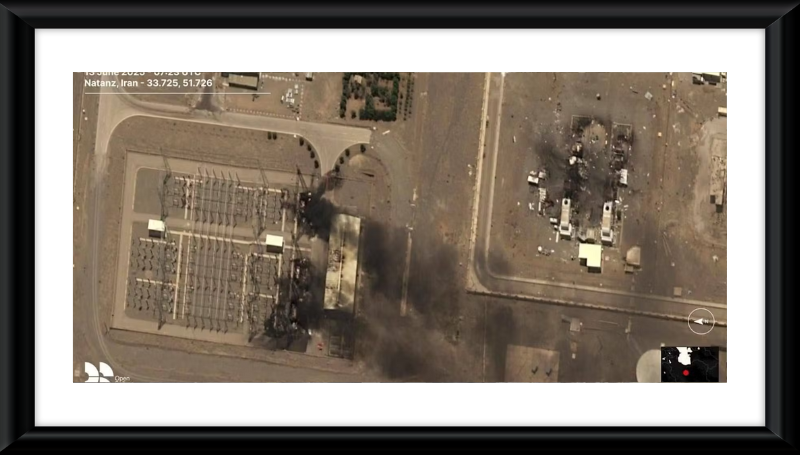Dr. Emmanuel Navon
JISS, June 30, 2025
“There are four countries that initiated military nuclear programs and were denied access to the bomb through outside military action, or out of fear of imminent military action: Iraq, Libya, Syria, and Iran.”
Following successful Israeli strikes against Iran’s nuclear plants, French foreign minister Jean-Noël Barrot claimed that only diplomacy can prevent Iran from becoming a nuclear power. The historical record suggests otherwise.
The United States and the Soviet Union were the first two countries to acquire nuclear weapons (in 1945 and 1949, respectively), but others would soon follow: the UK in 1952, France in 1960, and China in 1964. Since all five countries are veto-wielding and permanent members of the UN Security Council (even though China’s seat was still held by Taiwan at the time), only the “five policemen” were armed with a nuclear baton. That correlation ended when new countries joined the nuclear club: Israel allegedly did so in the late 1960s (although it maintains deliberate ambiguity about its alleged nuclear status); India in 1974; Pakistan in 1998; and North Korea in 2006. The 1968 Non-Proliferation Treaty (NPT) has thus failed to prevent nuclear proliferation.
India, Pakistan and Israel are not NPT signatories. North Korea signed the Treaty in 1985 but withdrew in 2003. All four countries —allegedly, in Israel’s case—obtained nuclear weapons against the will of the UN Security Council. Diplomacy and economic sanctions failed to prevent these countries from crossing the nuclear threshold. The only country to have voluntarily dismantled its nuclear program without outside military intervention—or the threat thereof— is South Africa. With the withdrawal of Cuban forces from neighboring Angola (a two-year process that began in 1989) and the winding down of the Cold War, South Africa’s nuclear arsenal lost its raison d’être. After assuming the presidency in 1989, Frederik de Klerk decided to dismantle the country’s nuclear program.
Argentina and Brazil also abandoned their nuclear programs after transitioning from military dictatorships to democracies (in 1983 and 1985 respectively), but neither had advanced to the stage of military nuclear capability.
Ukraine, Kazakhstan and Belarus are often cited as case studies of successful dismantling of nuclear programs via diplomacy, but these are misleading examples. All three were former Soviet republics who inherited a nuclear arsenal from Moscow and had no independent nuclear program of their own. They merely agreed under the 1994 Budapest Memorandum to give back to Russia the 3,000 nuclear weapons it had stationed in territories it no longer controlled. Ukraine today would likely dispute the notion that the Budapest Memorandum was a diplomatic success, since the loss of its nuclear deterrent invited Russian invasion in 2014 and in 2022.…..SOURCE


